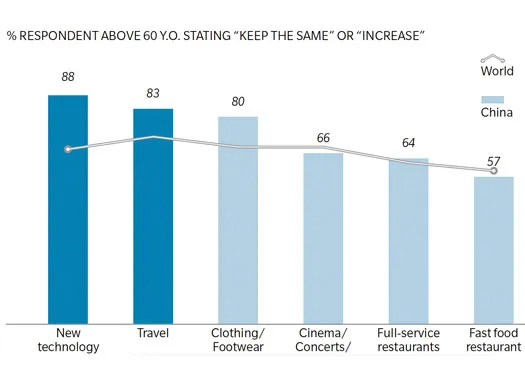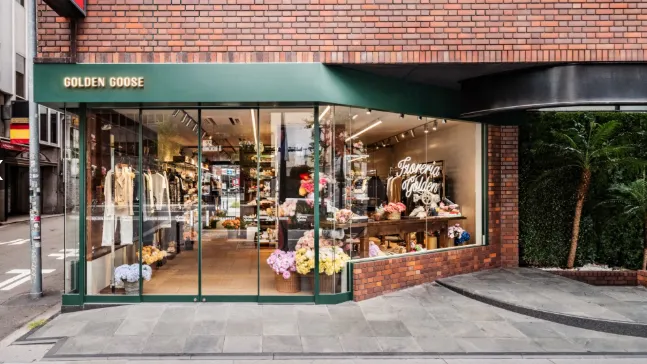
China's ageing population poses challenges and opportunities
More Than 50 Shades of Grey, published by global management consulting firm Oliver Wyman, takes a look at China’s ageing population, especially with regards to the challenges and opportunities it provides to the region’s consumer corporates.
As Oliver Wyman’s Jacques Penhirin, partner and managing director of Greater China, and James Yang, manager, wrote in the report, whether the country is ready or not, this growing elderly population is an economic and social reality.
The elderly Chinese population is expected to almost double to 455 million by 2030.
Some may view this as a picture of gloom as the dependency ratio of working adults to each elderly person declines — from 3.4 currently to possibly 1.5 in 2030.
But as the Oliver Wyman report shows, it can also present a silver lining of opportunity for the consumer industry.
According to the China Research Centre on Ageing, consumption of products and services by the elderly is projected to grow from RMB4 trillion (US$630 billion) today to more than RMB100 trillion by 2050.
Penhirin outlines three key potential sources of growth within the Chinese grey economy:
-
The desire of the elderly population to protect their health and financial well-being;
-
Their wish to reduce the burdens on their family; and
-
Their eagerness to enjoy new experiences.
Products and services targeted at the greying group will therefore be in tremendous demand.
The health and wellness market is an example, especially in proper long-term elderly care and the provision of nutritionals.
According to the China Research Centre on Ageing, consumption of products and services by the elderly is projected to grow from RMB4 trillion (US$630 billion) today to more than RMB100 trillion by 2050.
The diet of the Chinese elderly is much less advanced than in the West, and the taking of health supplements is much less common. This suggests that the elderly could become one of the major consumer groups for milk, multi-vitamins and other supplements catering to them.
More recently, for example, Abbott launched its first adult nutrition milk formula, Ensure Complete, through an extensive promotion campaign across more than 11,000 retail/pharmacy locations in China. By September, Ensure Complete was the top-selling product in Abbott’s Tmall flagship store.
A host of other products can also be specially marketed to cater to the elderly, such as smartphones and travel and tours.
The bigger question is how do you go about it?
Traditional marketing campaigns — through TV and newspaper advertisements — is one way, especially in creating a sense of credibility. Localised, in-person promotional campaigns is another.
But it is equally imperative to note the important role the government plays in China’s industry. In terms of health products for example, health supplements sold in China must be approved by the China Food and Drug Administration; and financial plans must be deemed suitable for the elderly.
It is also important to segment the Chinese elderly and understand at a deeper level their motivations and behaviour and relate it to one’s business.
The rich urban Chinese elderly, for instance, is vastly different from the rural Chinese in terms of what drives them. Retirees over the years will also think and act differently from their predecessors. Future retirees will, for example, be more tech-savvy, while an assessment should also be made as to who makes the purchasing decisions — the elderly themselves or their children?
To take advantage of the booming opportunities will require strategies that are sophisticated, specific and targeted, taking into account there are more than 50 shades of grey in China.
“By aligning the interests of the elderly, their children and the local government, new services can unlock a formidable business opportunity.” — Jacques Penhirin, Partner & Managing Director, Greater China, Oliver Wyman
Penhirin comments that shopping malls tend to ignore the Greying China opportunity as they usually focus on brands that appeals to the younger consumers.
Said Penhirin: “The greying China consumers spend could be an opportunity for shopping malls. Designing flows and traffic circulation that are more convenient for slower movers would be the first criteria.
The tenant mix could also be geared toward more services of which the elderly are more inclined to buy. Bringing in sales service staff could also help the elderly consumer.”
Responding on brands that are targeting the greying population well in China, Penhirin said: “FMCG products targeting the elderly are already widely available. However, the penetration remains low compared to western countries.
“A typical case would be health supplements. Beyond FMCG, technology devices remain an opportunity to be tapped. From medical devices to communication related, the elderly are willing to embrace new technology as long as it is simple to set up and use.
“Finally, services will be a big opportunity. By aligning the interests of the elderly, their children and the local government, new services can unlock a formidable business opportunity.”
On catering to technology adoption of the elderly, according to Penhirin, the elderly are adopting new technology but the technology they want needs to be simpler and more user friendly — for example, having larger screens, larger fonts, fewer clicks and ease of connection.



















 Advertise
Advertise






